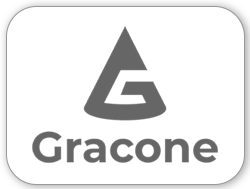
In order to award PDH credits to engineers for a webinar, lunch & learn, or an online course, you need to understand the state boards’ requirements. More than 40 states mandate professional development for engineers and each state has its own rules.
Board Approval
Most states don’t have a formal approval process for PDH providers. Instead, they leave it up to the engineer to decide whether an activity meets the Board’s requirements. For states that do have a formal approval process, you need to apply and get approved as a continuing education provider by the state engineering license board.
A lot of professional engineers are licensed in multiple states. Thus, if you want to issue PDH credit to engineers, you need to understand the rules in every state. Let’s say you hold a lunch & learn at an engineering firm in Williamsport, Pennsylvania. You can expect that most of the engineers in attendance will be licensed in the state of Pennsylvania, which does not formally approve PDH providers. However, there’s a good chance that some of those engineers will also hold a license in New York, which does require engineers to earn PDH credit from an approved provider. Additionally, both New York and Pennsylvania restrict various topics as the subject of PDH, and those restrictions are different for each state.
Approved Topics
Whether a state board has a formal PDH provider approval process or not, all the state boards place restrictions on the topics that are acceptable for PDH credit. In general, engineering topics and professional ethics topics are accepted by all state boards. In fact, some states require engineers to earn at least 1 PDH of professional ethics credit in each renewal cycle.
Business skills, personal development, and office management topics are not acceptable for PDH credit in some states.
The rules vary widely between states when you get outside of engineering topics. Some states restrict business skills, personal development, and office management topics. A webinar titled “How to Improve Your Negotiating Skills” may be acceptable in one state, but not acceptable in an adjacent state. Some topic areas are accepted, but with nuances. For example, New York accepts project management courses and webinars, but not if the focus is related to improving or maximizing profitability.
Approved Formats
Live in-person presentations are accepted for PDH credit by all state engineering licensing boards, provided that the presentation covers an approved topic. Live webinars are also accepted for PDH credit in all states. However, there are caveats in some states, such as a quiz requirement at the end, or the ability for immediate interaction between attendees and the instructor.
There are limits on the number of PDH that engineers can earn by completing online courses in some states, whereas no such restrictions apply to webinars and lunch & learns.
Online courses are approved for PDH credit in most states provided there is an acceptable method to assess whether the course learning objectives were met, such as a quiz at the end of the course. However, some of the states that accept online courses put limitations on the number of hours that can be earned using this format. Wisconsin, for example, requires that a minimum of 13 PDH be earned in activities that permit live interaction between the engineer and instructor—thus limiting self-study online courses to 17 PDH of the 30 PDH required biennially. One state, Ohio, requires online courses to be delivered on a platform that has “timed and monitored” functionality, which prevents the engineer from completing the course in a shorter amount of time than the PDH credits that are awarded.
It should be noted that determining acceptable topics and formats is not as straight-forward as simply reading the boards’ laws & rules. The requirements are not always clearly spelled out. For example, in several states, online courses are accepted even though the Board’s rules do not explicitly state that they are acceptable. You need to contact the Board when the rules are not clear.
Marketing and Sales Presentations
Courses, webinars, and lunch & learns must be educational. Sales pitches, equipment demonstrations, and tradeshow displays are not acceptable for PDH credit. If your company manufactures pumps, it would be appropriate to give a presentation, for example, that educates engineers on how to size a pump. It’s not appropriate to present the features and benefits of the various pumps in your product line. Nor is it acceptable to do a comparison of how your pumps compare with competitors’ pumps.
Any discussion of your company’s capabilities should be brief and must be placed at the end of your presentation.
Any references to your company or specific model numbers in your course or presentation should be avoided. That doesn’t mean that you are prohibited from mentioning your company’s name at all. When giving a presentation, it is customary for the speaker to begin with a short introduction about himself, which will invariably make references to his current employer.
If you wish to tell the audience about your company and its capabilities, that’s OK. But, make it short. And do it at the end of the presentation after you have met the minimum time requirements for the PDH credit that will be awarded. Don’t mix sales with educational content.
Certificates
To award PDH credit to an engineer, you need to issue a certificate of completion. The minimum information you should include on a certificate of completion is:
Additionally, some states that have an approval process for providers require the Provider # to be listed on the certificate.
Recordkeeping
The boards conduct random audits of licensees for verification purposes. The requirement to maintain adequate records of PDH completion falls on the engineer. However, some state boards also require continuing education providers to maintain records of certificates. The required amount of time varies by state, but it can be as long as 6 years.


